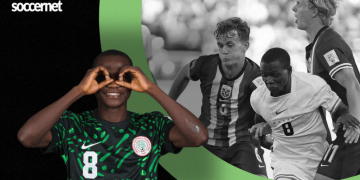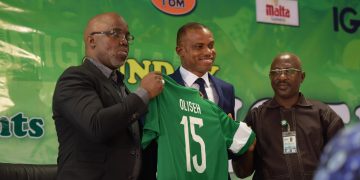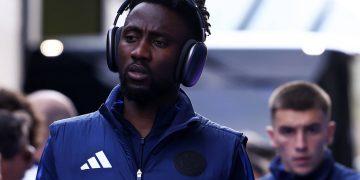The contract of Jose Peseiro, the coach of the Nigerian national football team, is set to expire in June. The question is, does he deserve a 12-month contract extension?
The answer to this question depends on several factors, including Peseiro's performance, fanbase and media perception, financial considerations, and long-term strategy.
Firstly, let's examine Peseiro's results in charge of Nigeria. It is clear that his performance has been below average, with the team winning only three and losing five of eight games played under his leadership.
The low point was the Eagles' disappointing 1-0 loss in Abuja on Friday to Guinea-Bissau, a team over 80 places below Nigeria on the FIFA ranking.
This is a cause for concern, as winning games is the primary objective of any coach.
However, it is worth noting that Peseiro has not had a full year in charge of the Super Eagles, as he was employed midway through 2022. And faced with a disjointed schedule following Nigeria's absence at the FIFA World Cup in November, the Portuguese tactician has had limited opportunities to build a cohesive team.
Secondly, Peseiro is not popular among Nigerian fans and media. This is an important factor to consider in a football-crazy country like Nigeria, where fan support and media coverage can greatly influence a team's perceived success.
If Peseiro is unable to win the support of the fans and media, it could create a negative environment that could fast-track his dismissal. The 62-year-old has until June to improve on that score.
Thirdly, Peseiro's salary is also a thorny issue.
At over $70,000, the former Sporting Lisbon manager earns almost twice that of his predecessor, Gernot Rohr, who was sacked despite leading the team to a third-place finish in the 2019 Africa Cup of Nations.
This raises questions about the financial implications of extending Peseiro's contract, especially if the team's performance does not improve significantly.
Finally, the long-term goal of the Nigerian national football team is to win the Africa Cup of Nations (AFCON) in Ivory Coast next year, and Peseiro has suggested that he can deliver this goal.
However, it is important to consider his ability to develop young players, his tactical approach, and his ability to adapt to changing circumstances. Not much has been gleaned from the Portuguese tactician in eight months in this regard.
In conclusion, the decision to extend Peseiro's contract should be based on carefully evaluating his performance, fan and media perception, financial considerations, and long-term strategy. While Peseiro's results have been below average, it is worth considering the short time he has spent imprinting his ideas in the Super Eagles. However, when that is coupled with his poor popularity among fans and media, high salary, and uncertain long-term prospects, the visible projection is that Peseiro is not the best fit for the three-time African champions.
Ultimately, the decision to retain or dismiss Peseiro should be based on what is best for Nigerian football, the Super Eagles, and their long-term goals.





